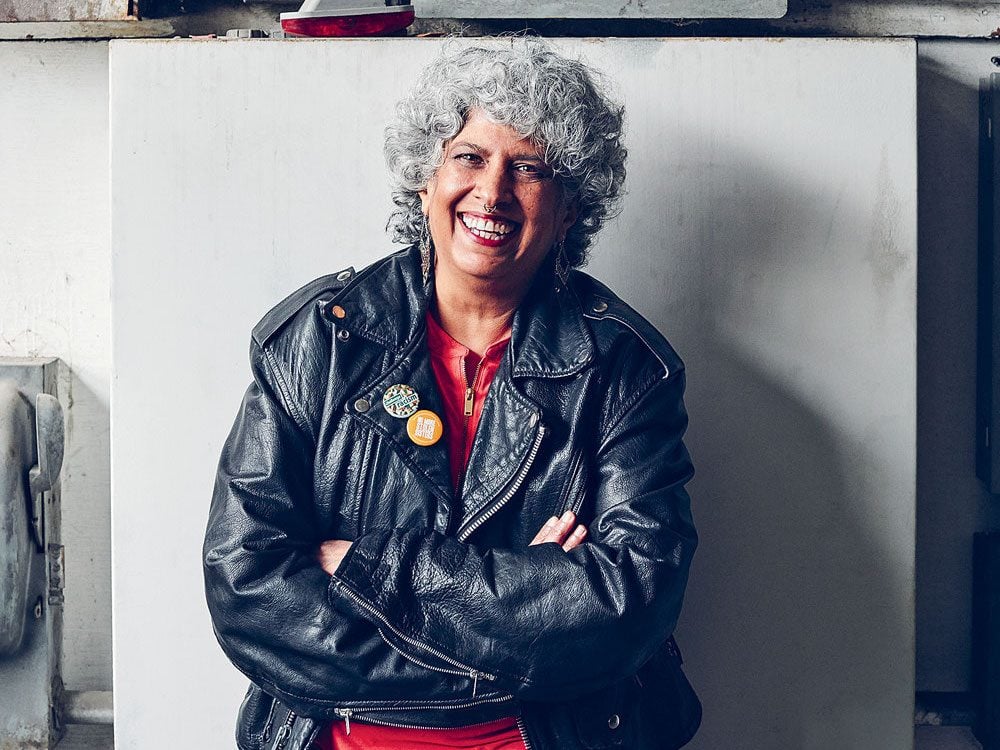This Group Inspired Thousands of Canadians to Help Each Other Through COVID-19
How Caremongering Toronto co-founder Mita Hans sparked a worldwide movement to be kind.

In it together
When the COVID-19 pandemic hit in March, 53-year-old Toronto disability support worker Mita Hans worried that her elderly neighbour might have trouble. Hans asked if she could help out. At first, the neighbour was more annoyed than appreciative, curtly telling Hans to stop “scaremongering” her. “I’m not trying to scare you; I care about you,” Hans responded. A few days later, she dropped off groceries and has done so several times since. “She’s my biggest fan now,” Hans says.
Hans knew her neighbour wasn’t the only person who’d require an extra hand in the coming weeks, as shelves emptied and the entire country went into lockdown. Along with her 46-year-old friend Valentina Harper, who works in e-commerce, Hans launched a Facebook group called “CareMongering-TO.” They imagined the group would connect a few dozen neighbours with others who needed help.
Within two days, hundreds of volunteers had signed up. Soon the group numbered in the thousands, as spinoffs launched in Hamilton and then Halifax. By April, it had gone international. As proof of their impact, the term caremongering is now used to describe thousands of mutual-aid-style groups that have sprung up during the global pandemic. Both Justin Trudeau and Barack Obama have tweeted their praise.
While Hans jokes she didn’t set out to invent a verb, she’s always been invested in giving back to her community. Raised Sikh, she and her siblings performed regular sevas, or selfless services. She now devotes most of her hours away from her full-time job working with disabled adults at Community Living Toronto to the caremongering cause. She says the only way she’s been able to do it all is thanks to the group’s 23 volunteer moderators and admins.
The movement has helped thousands left vulnerable as a result of COVID-19. To ask for help, a person simply posts a request with the hashtag “ISO” (in search of) on their community’s caremongering page. People have asked for everything from groceries and masks to help filling out government funding forms. Volunteers will then meet requests in the comments or post messages that they have goods and services to share.
Most #ISO posts are answered within hours, and many volunteers say helping others during the pandemic has boosted their own well-being. Toronto’s Abigail Millar is one of them. She saw an #ISO post for protective gear in late March from a health care worker and got to work transforming a bed sheet into masks. She has since made more than 3,000. Being a caremonger, says Millar, has helped her through the hard time: “Having a sense of purpose has been really great. I get up, I have my tea, and I get sewing.”
Hans says this reciprocal positivity is an essential part of caremongering’s model. So too is amplifying marginalized voices. Her advisory team includes four Indigenous people and members of the University of Toronto’s Black Medical Students Association. And while she has no plans to turn caremongering into a full-time job, she sees endless potential in expanding the mutual aid framework. “What’s happening right now,” she says, “is sparking all sorts of conversations about how our world operates, who benefits from our economic structure and what we mean by essential.”
She hopes that the basic principle underlying caremongering—giving according to ability and taking according to need—will outlive the pandemic. She says the caremongering model will come in handy as we face the next major crisis. “We’ve got climate change coming,” she notes. “What we’re experiencing now is just a test run.”
Next, read these extraordinary stories of kindness, compassion and bravery.



